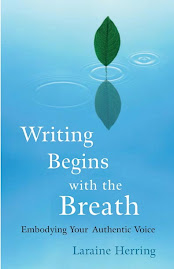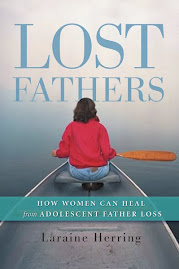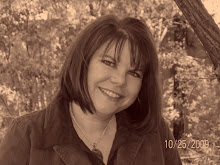Sunday, May 16, 2010
Midlife Mid Career Writing Advice
So far, for me, midlife (big assumption that this is where I am -- 82 is looking younger all the time!) has been about getting rid of stuff -- whether that stuff is 3-dimensional or emotional or psychological. It's been about accepting that what worked in my twenties (everything from types of food to exercise routines to types of relationships) doesn't necessarily work in my forties. Joseph Campbell said that midlife was about reaching the top of the ladder, only to realize that the ladder was up against the wrong wall. I realized my ladder was up against the wrong wall before mid-life. What's been a slower revelation are the transitions within a writing life and within a writing process as I age.
I was struck this year by the youth in my writing classes. Their fiery energy. Their certainty that there will always be another story, more time, more imagination. Their general lack of interest in revision, in craft, in process. Their drafts were disposable. Their experiments conducted without commitment. There's nothing inherently wrong with this. Compared to my students who are farther along in years than I who are afraid to let anything go, afraid to start, afraid to stop, afraid to create things that aren't perfect, they are a breath of fresh air. My older students are constantly aware that time is not on their side. My younger students think time will always be in service to them. It's an interesting dichotomy to have in the classroom -- the dance between "there will always be tomorrow" and "there may never be another time". The two sides are good for each other, and for me, standing not just in the front of the classroom, but in the middle of these two extremes. The edges help frame my perspective, help me realize what to let go of, caution me against the rigidity that could come next. I am in the middle of the duel between reckless and afraid.
I remember the writer's ego of my younger days. Part of that ego came because I am a good writer. The other part came from believing good was good enough, and that my good-enough would never be challenged. I remember doing just what my students do -- scratching out a draft right before the due date, never looking at the comments from my teachers, believing (sounding surprisingly like that part of me that believes I will be the one human not to die) that I was just not understood by the teacher or the group. I know this place when I see it in my students, and I know it has to run its course. I know that of my 100 students a semester, 5 are serious, fewer than that will make writing their lives.
I remember the urgency to say everything in one play, one story, one poem. The need to shout my perspective from the rooftops and slam the door on those who didn't share it. I remember how angry I was to realize that I had a degree in literature and had only been required to read the works of two women (Toni Morrison and Virginia Woolf). I remember the power of the 1st person narrative, and how impossible it seemed (and how ridiculous) to write from any other point of view.
But something shifted. Shouting only made my throat raw. Being attached to how I was perceived and how others perceived things caused nothing but suffering. First person morphed into third person as a primary point of view choice -- perhaps as I morphed from a person whose eye was "I" into a person who could see a larger community, a larger world besides my own skin. The girl who wrote decent drafts in one sitting began to write slower, began to listen for a long time before she even put a word on the page. The girl who had always loved the ease with which the words had come began to notice that the words that came the easiest were not usually the right words. She began to understand the adage "only real writers revise" and began to look not just at the big picture, but at each word in the sentence, the placement of each comma. Her respect for writing grew as her need to be seen within it waned. And then she realized this, which stopped her heart:
The first draft is not a badly executed solution to the problem of the narrative. A first draft is, at its best, a scratching out of the problem itself. The first draft (yes, all 300 pages of it) if you're lucky, will show you the question of the narrative. It will contain signposts for you as you begin to do the rest of the work. It will contain clues. But it is not the solution. It is the submission of the question.
If one is lucky, humility soon replaces arrogance as a writer ages. Where is that fire? She might wonder. Where is the certainty? Was she no longer a writer? But like the rest of her life, the fire has ceased to rage and begun a more steady, constant pulse. And the certainty, well, now she knows there never was such a thing. And the purpose of that first draft becomes the seeking of the question, rather than the attempt to answer it. And because the fire has ceased to blaze out of control, it can become the fuel for the long journey of the novel.
Is youth wasted on the young? No way. My forty-one year old body can not sustain that anger or that energy. My forty-one year old body wants to watch and stretch and drink water with lemon. My forty-one year old body is interested in new writing questions, in the third person point of view, and in building a bridge instead of a wall. And if someone had told my twenty-year old body this, I would have dismissed it, if I'd have even heard it. So when I stand in front of my class of twenty and sixty year olds, I try to channel youth's blaze, use it to fan the waning heat of the others, and keep myself hydrated, flexible, and silent.
Subscribe to:
Post Comments (Atom)












No comments:
Post a Comment